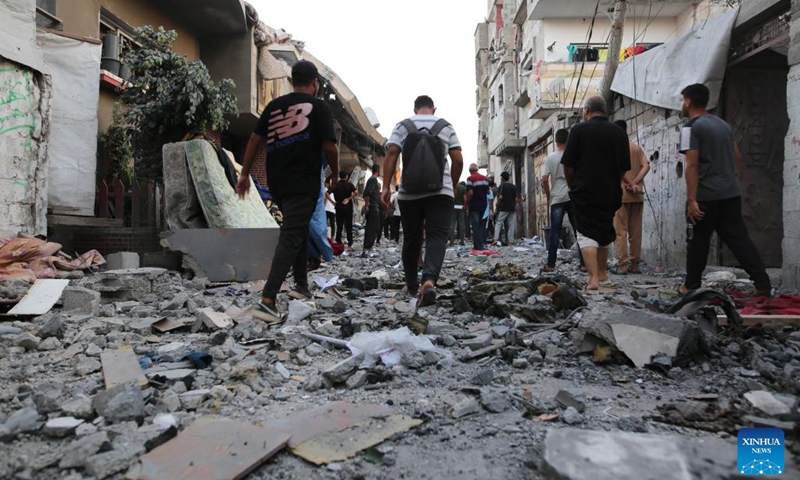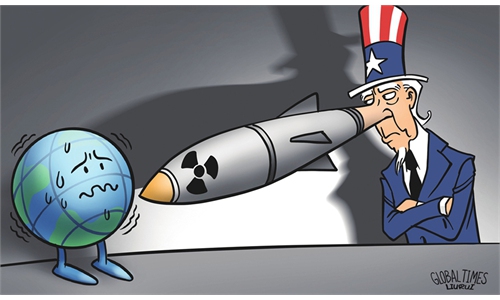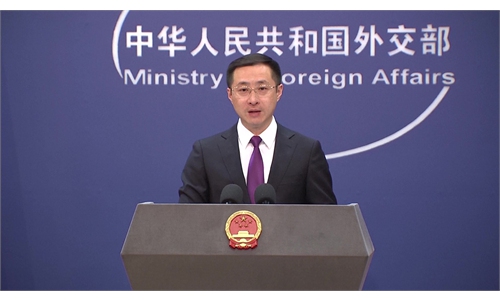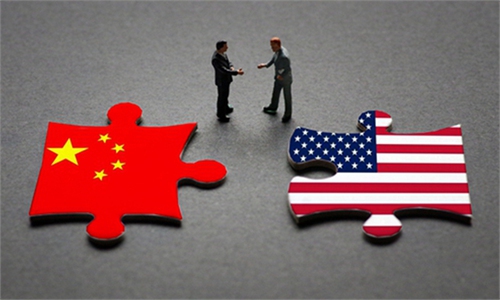China reportedly hosts Fatah-Hamas talks, ‘shows responsible role as a major power’

People gather at a building destroyed in an Israeli airstrike in Al-Maghazi refugee camp, central Gaza Strip, on July 15, 2024. (Photo: Xinhua)
As Israel continues to expand its offensive in the Gaza Strip, China is reportedly hosting talks to bridge the gap between the rival Palestinian factions of Fatah and Hamas from Saturday to Sunday, aiming to resolve the serious political divisions that have persisted for 17 years. Experts said that promoting reconciliation within Palestine is a key factor in resolving the Palestinian-Israeli conflict, and China can play a positive role in this process where the US cannot.
Hamas, which runs Gaza, and the Fatah movement, which has partial administrative control in the Israeli-occupied West Bank, have been locked in bitter rivalry since Palestinian legislative elections in 2006. The two groups, under Chinese reconciliation efforts, agreed to meet in Beijing from Saturday to Sunday for peace talks, according to AFP.
Various reconciliation bids have failed over the years, but calls have been growing since the start of the latest Palestinian-Israeli conflict in October last year which set off a new round of chaos in the Middle East, with violence also soaring in the West Bank where Fatah is based, media said.
The Hamas delegation is headed by its Qatar-based political chief Ismail Haniyeh, while the Fatah representation is led by deputy head Mahmud Alul, according to Fatah sources, AFP reported.
Sabri Saidam, Fatah's central committee deputy secretary general, told media prior to the meeting that the goal is "to end the state of division with a commitment to past agreements and agreeing on a relationship between the Palestinian groups in the next stage."
Promoting reconciliation within Palestine is one of the key factors in resolving the Israel-Palestine crisis, Zhu Yongbiao, executive director of the Research Center for the Belt and Road at Lanzhou University, told the Global Times on Sunday.
"Facilitating talks between the two sides is strategically important even if Israel withdraws from Gaza. The problem still cannot be fundamentally resolved without addressing Palestine's internal rifts," Zhu said.
Beijing's provision of a platform for talks suggests that China emphasizes addressing the issue at its root and has taken proactive actions to offer an environment conducive to peace, which is particularly valuable in the current complex situation, Zhu noted.
A Middle Eastern media commentary said that China's invitation to the two conflicting factions to attend talks in Beijing "highlights China's confidence and strength," the commentary stated. "Regardless of whether it will be successful or not, this diplomatic move by China demonstrates its responsibility as a permanent member of the United Nations Security Council, which is truly remarkable."
Israel continued bombardments across the Gaza Strip on Saturday, which claimed dozens of Palestinian lives in the southern, central and northern parts of the besieged territory, including local journalist, Al Jazeera reported.
Meanwhile in Yemen, at least three people were killed and 87 were wounded in Saturday's Israeli air attacks that targeted an oil storage facility and power plant in the port city of Hodeidah, officials said. Israeli raids also caused injuries in southern Lebanon, according to media reports.
Experts suggested that China can play a constructive role in promoting dialogue in the Middle East where the US cannot. Due to the US' indulgence of Israel, it cannot engage in dialogue with Hamas while China, which has always maintained a fair and neutral stance, is able to talk with both sides as well as with intra-Palestinian groups.
"Although results have yet to be seen, China has already played a positive role by putting the two groups back on the same table. In contrast, the US turned out to be more destructive and destabilizing, and failed to follow through on its promises," Zhu noted.
The experts further stressed that if China and the US along with other major countries can work together and form a united stance on the Palestinian-Israeli conflict, the crisis could be resolved more quickly and effectively. Unfortunately, despite China's repeated calls for such cooperation, certain countries are reluctant to do so, which is one of the major causes of the prolonged existence of this problem, experts noted.



